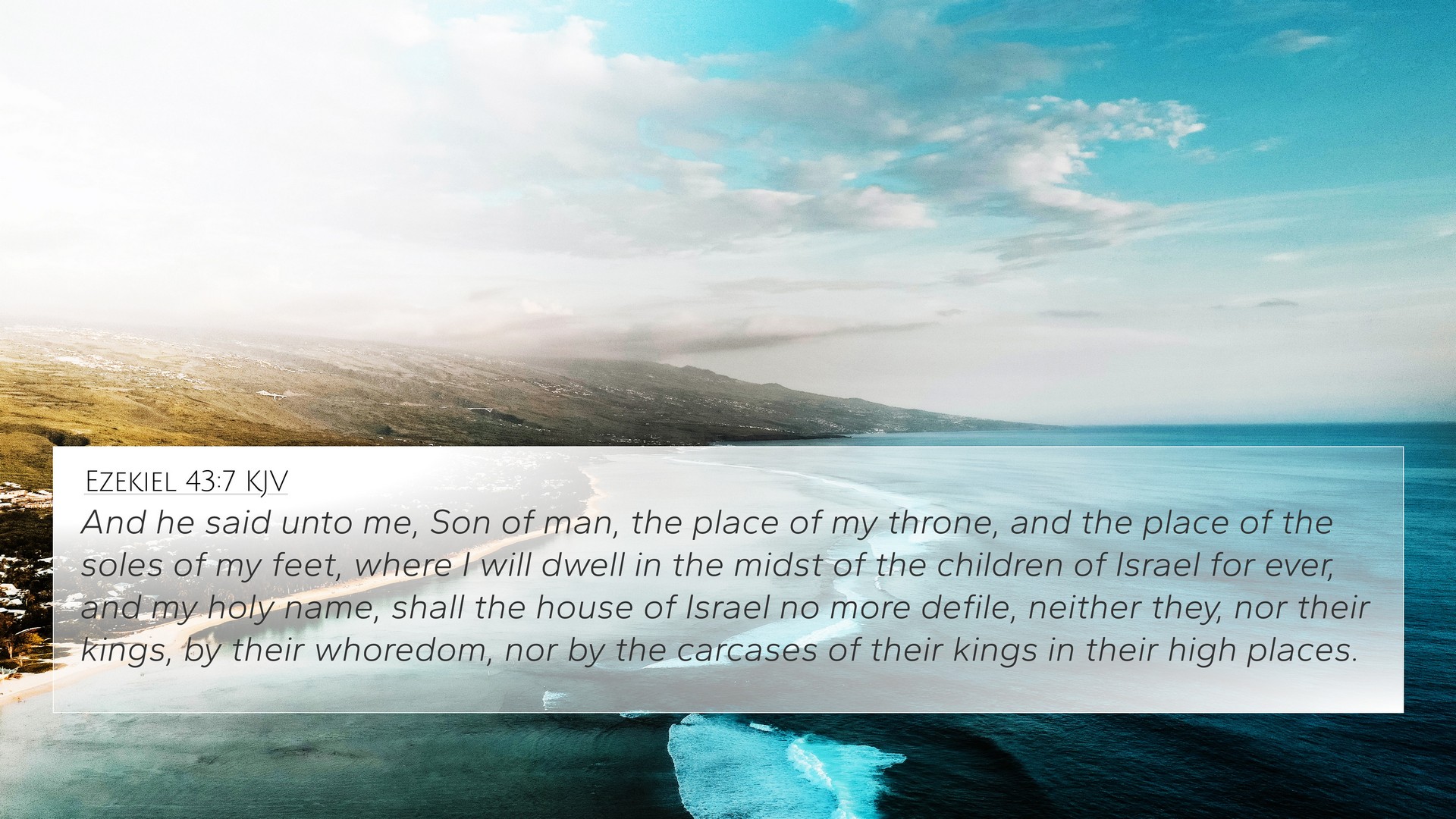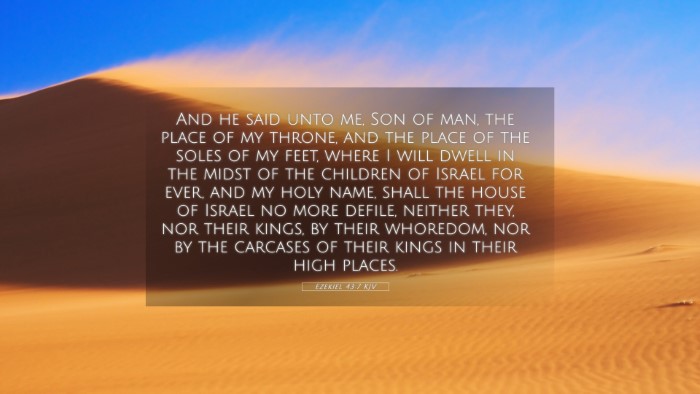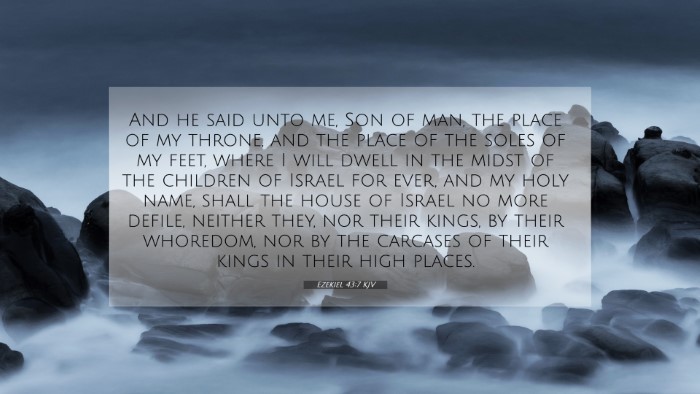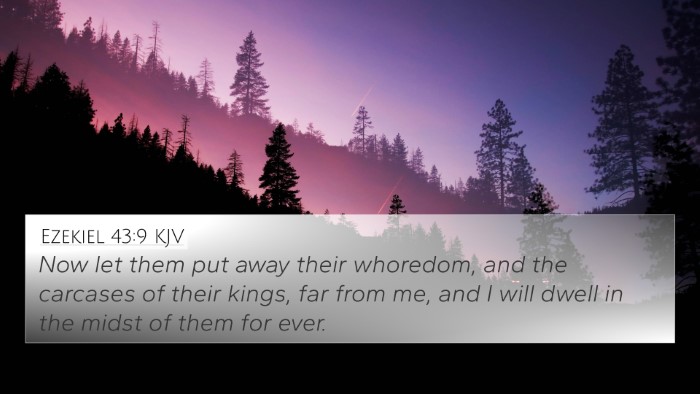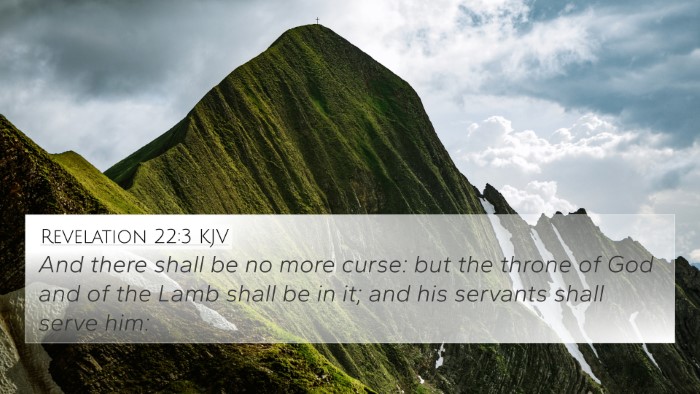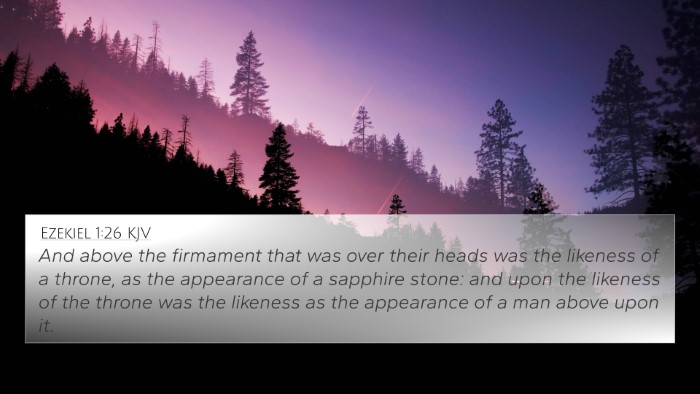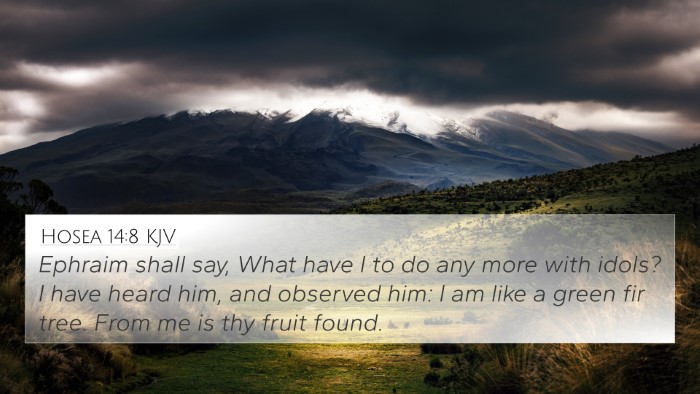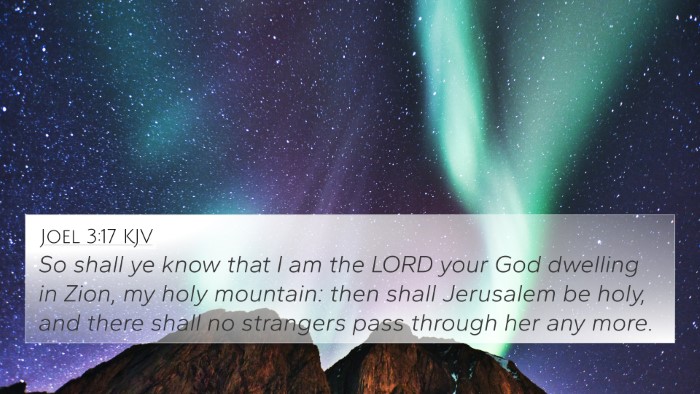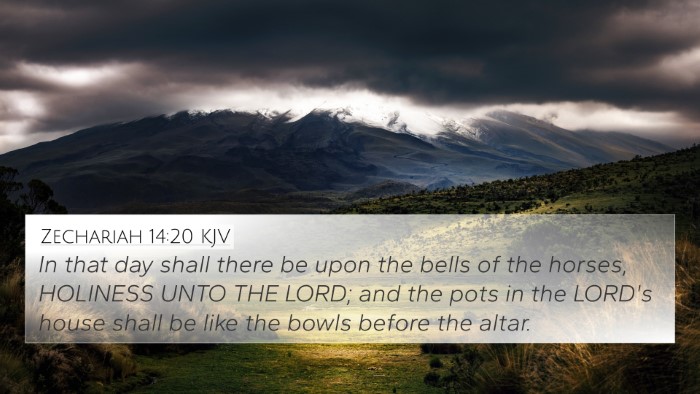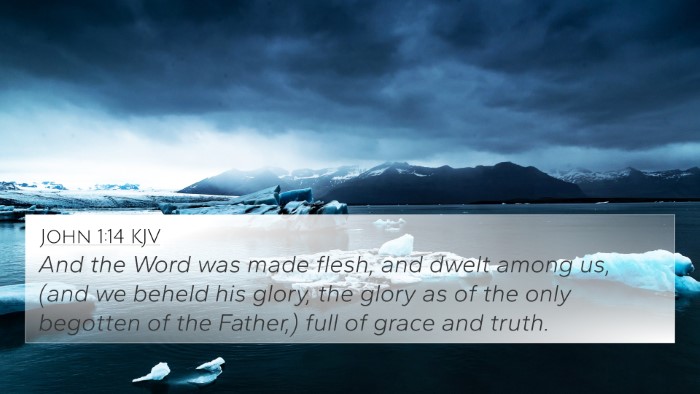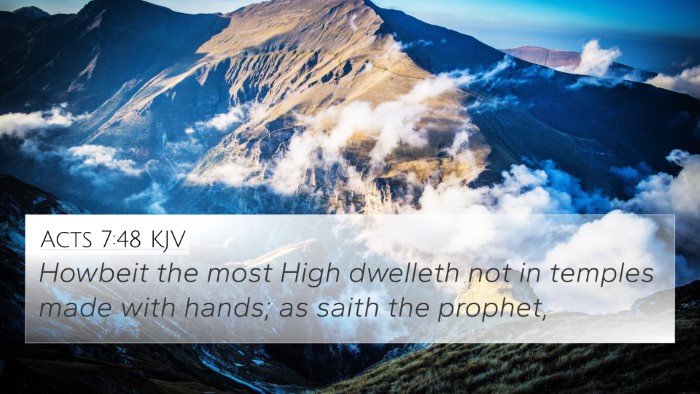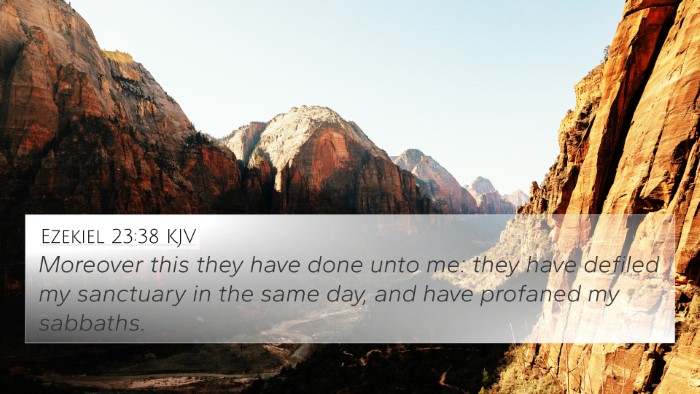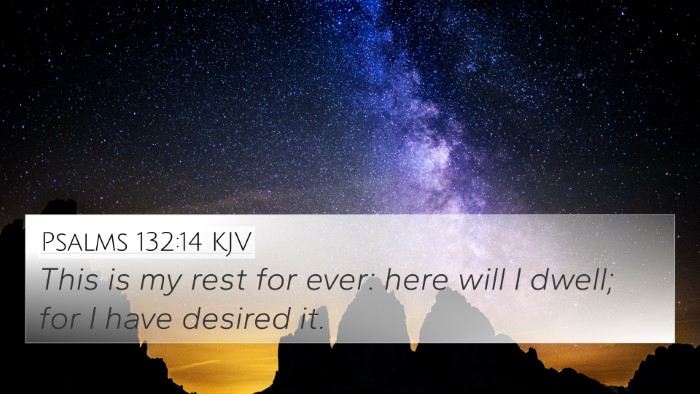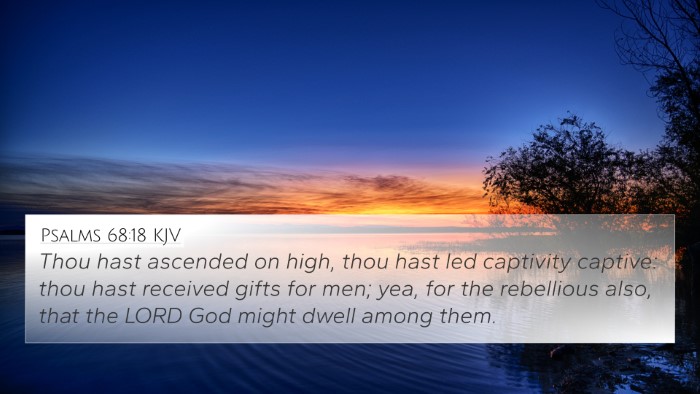Ezekiel 43:7 - Understanding the Verse
"And he said unto me, Son of man, the place of my throne, and the place of the soles of my feet, where I will dwell in the midst of the children of Israel for ever, and my holy name shall the house of Israel no more defile, neither they, nor their kings, by their whoredom, nor by the carcases of their kings in their high places." (Ezekiel 43:7)
The verse from Ezekiel 43:7 speaks of the centrality of God's presence among His people, emphasizing the sanctity of the dwelling place of the Lord. Here, we will explore the meanings and connections of this verse through insights from public domain commentaries.
Verse Meaning and Context
This verse comes at a critical moment in Ezekiel's prophecy, as it describes the vision of a new temple and the restoration of worship in Israel. The Lord speaks of His throne and presence dwelling among His people. Public domain commentaries provide us with various insights:
-
Matthew Henry:
Henry highlights the significance of God establishing His throne among His people, indicating an intimate relationship. The phrase "the soles of my feet" suggests God's full authority and divine governance over His people.
-
Albert Barnes:
Barnes emphasizes the contrast between the future glory of God's dwelling and the past defilement by the Israelites. He notes that God desires a pure and holy place, free from the sin that had previously marred their worship.
-
Adam Clarke:
Clarke points out that God's dwelling will not only represent His presence but also His everlasting covenant with Israel. God intends to dwell among His people forever, affirming His commitment to them despite their unfaithfulness.
Thematic Connections
This verse can be linked to various themes in Scripture, demonstrating God's desire for holiness and His intimate relationship with His believers. Below are several related Bible verses that further explain the themes present in Ezekiel 43:7:
- Exodus 25:8: "And let them make me a sanctuary; that I may dwell among them." - This verse establishes God's desire to dwell with His people from the time of the Exodus.
- Psalm 68:16: "Why leap ye, ye high hills? this is the hill which God desireth to dwell in; yea, the Lord will dwell in it for ever." - This emphasizes the eternal aspect of God's dwelling place.
- John 1:14: "And the Word was made flesh, and dwelt among us..." - The New Testament fulfillment of God dwelling with humanity through Jesus Christ.
- Revelation 21:3: "And I heard a great voice out of heaven saying, Behold, the tabernacle of God is with men, and he will dwell with them..." - A promise of God's eternal presence in the new heaven and earth.
- 1 Corinthians 3:16: "Know ye not that ye are the temple of God, and that the Spirit of God dwelleth in you?" - Highlighting the indwelling of God within believers.
- Hebrews 8:1-2: "Now of the things which we have spoken this is the sum: We have such an high priest, who is set on the right hand of the throne of the Majesty in the heavens..." - Showing Jesus as our High Priest and the heavenly sanctuary.
- 2 Corinthians 6:16: "And what agreement hath the temple of God with idols? for ye are the temple of the living God..." - A call for the purity of God's dwelling among His people.
Insights on Holiness and Worship
Ezekiel 43:7 also addresses the defilement of God's name due to Israel's sins, particularly their idolatry. This calls for a return to holiness and pure worship. Public domain commentaries provide further insights into this crucial theme:
- Matthew Henry: Henry underlines the seriousness of defiling God's name, suggesting that God's holiness cannot coexist with sin. He invokes a sense of urgency for repentance and return to the divine order.
- Albert Barnes: Barnes points out that the sins of the kings and people lead to God's displeasure, and a restoration to holiness is required to see God's glory again in their midst.
- Adam Clarke: Clarke illustrates that the idolatry has resulted in a rift in the relationship between God and Israel. He emphasizes the need for purification to restore God’s presence among them.
Cross-Referencing and Inter-Biblical Connections
In understanding Ezekiel 43:7, utilizing cross-referencing tools enhances our comprehension of the interconnectedness of Scripture. This verse serves as a prime example of how Old Testament themes about God's dwelling provide profound insights into New Testament revelations. Here are some practical tips for anyone interested in bible cross-referencing:
- Utilize a Concordance: A Bible concordance allows you to look up words and see all the verses that contain them, creating thematic connections.
- Compare Versions: Different translations can shed light on nuances within the text that can lead to deeper understanding.
- Thematic Studies: Group verses by themes such as 'God's presence,' 'temples,' or 'idolatry' to see how different passages relate to one another.
- Use a Study Bible: Many study Bibles include footnotes or sidebars that reference related verses which can assist in connecting the themes.
Conclusion
Ezekiel 43:7 stands as a powerful reminder of God's desire to dwell among His people in holiness. The insights gathered from esteemed commentaries, along with the cross-referenced connections throughout Scripture, reveal the depth and importance of this message. By understanding this verse and its surrounding context, we begin to see the overarching narrative of God's commitment to His people and the requirement of a pure heart in worship.
As we seek to understand the Bible's message better, engaging with tools for Bible cross-referencing will enrich our study and deepen our faith.
